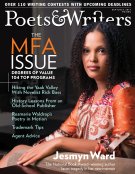Under the traditional university model, students who wanted to take a poetry class with Margaret Soltan, a longtime associate professor of English at George Washington University in Washington, D.C., would have had to apply, enroll, pay tuition, and show up for class on campus. The move to online courses, which Soltan’s employer and many other colleges and universities across the country have embraced over the past few years, has changed that model somewhat, no longer requiring physical presence on campus for students and teachers. But a more recent innovation, one in which Soltan and a number of faculty members at institutions of higher learning nationwide have begun to take part, also eliminates the formal enrollment process—and the tuition.
Massive open online courses, commonly known as MOOCs, are free and available to anyone in the world. A number of private companies, such as Udemy, Coursera, and EdX, have partnered with individual professors, such as Soltan, and universities, including Duke, Harvard, and MIT, to offer such classes. A quick online registration process through a MOOC provider is all it takes to get started.
Unlike traditional courses, MOOCs do not grant credit. Classes are typically taught by “star” faculty from participating institutions—one of the movement’s main selling points—who design the curriculum and record lectures that students can watch or listen to online. For participating universities, MOOCs function in part as a publicity and recruitment tool: Some students taking MOOCs may end up enrolling in for-credit degree-granting programs. Many MOOCs also feature a discussion board through which students can interact with one another and sometimes with the professor. While some MOOCs include assignments, traditional grading is generally not offered because enrollments can soar into the thousands. Assignments are either auto-graded (usually in a multiple-choice quiz format) or assessed by peer review.
The first modern-day MOOC was launched in 2008 in Canada; in the United States a more organized effort began in the fall of 2011 through Stanford University. Introductory engineering, statistics, and computer science classes were some of the first designed in MOOC format, but literature and writing classes have increasingly begun to fill MOOC rosters as well. Udemy leads the way in creative writing, offering classes in poetry, fiction, memoir, and young adult literature, while Coursera offers a class on comic books and graphic novels.
Soltan, who teaches a course through Udemy titled Poetry: What It Is, and How to Understand It, says that MOOCs can offer information about literature and writing to people who may not otherwise have access to it.
“The thing about MOOCs is that they reach a large general public,” Soltan says. She notes that a significant number of students in her course live outside the United States. “It’s so gratifying to hear from people in China who say they are grateful that this exists, that they can learn about poetry from a native English speaker.”
Janet Gool, a student in Israel who has taken Soltan’s course, says that she has always enjoyed poetry and appreciated the chance to learn more in a flexible format. She often listened to Soltan’s lectures as she prepared Sabbath meals. “If there was something [in the lecture] that demanded more attention,” Gool says, “I could sit down and listen, or go back [and listen again] to that part.”
John Warner, a visiting creative writing instructor at the College of Charleston in South Carolina, agrees that MOOCs can be valuable, particularly for people like Gool who are looking for enrichment or professional development. He also sees a place for MOOCs—particularly in the form of lectures and essays from noted writers—as a supplement to a traditional curriculum. But he, like other critics, has concerns that as universities face increasing budget cuts, the movement could indicate a greater shift in higher education, from merely offering educational content to the masses to the possibility of universities using MOOCs to replace traditional courses.
“Opening a course to two hundred thousand students around the world is interesting,” Warner says, “but not a substitute to replace regular courses merely because it’s cheap.” Writing and literature classes, even those offered in a low-residency format, especially benefit from a teacher’s presence, someone who can offer feedback and assessment on creative work and critical analyses. “A MOOC has value,” Warner says, “but it isn’t a substitute for that kind of learning.”
Rachael Hanel is the author of We’ll Be the Last Ones to Let You Down: Memoir of a Gravedigger’s Daughter, published this past March by the University of Minnesota Press. Follow her on Twitter, @Rachael18.






